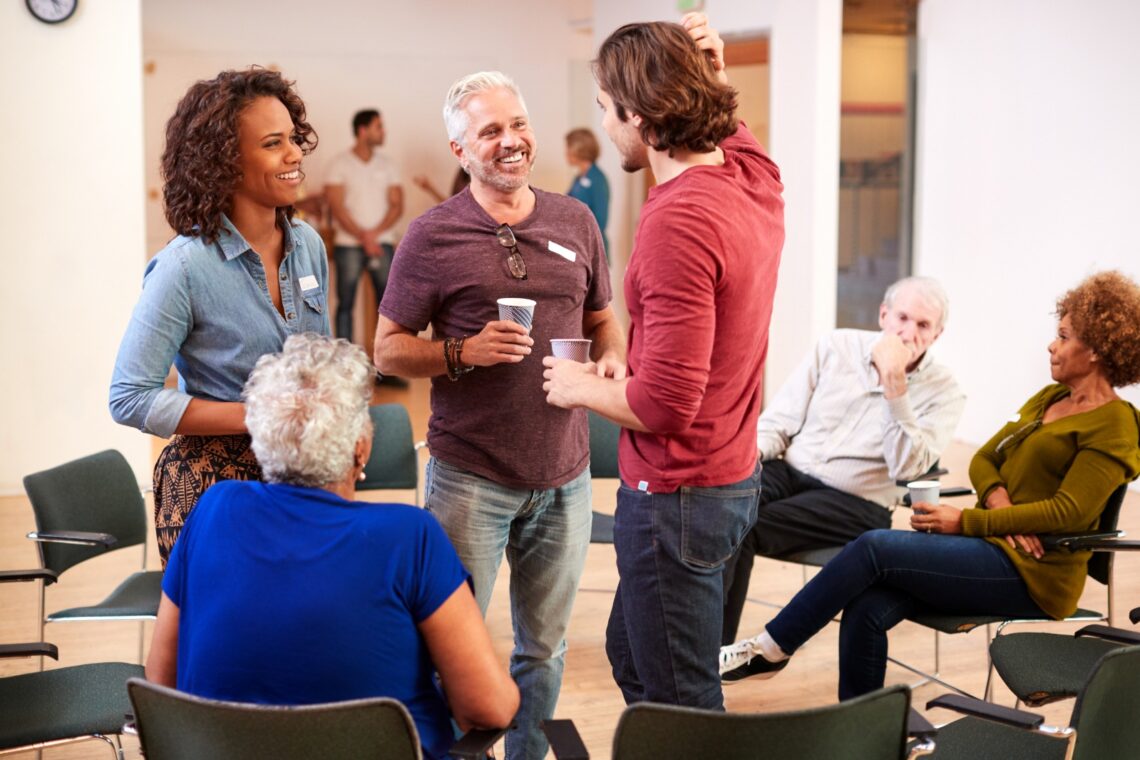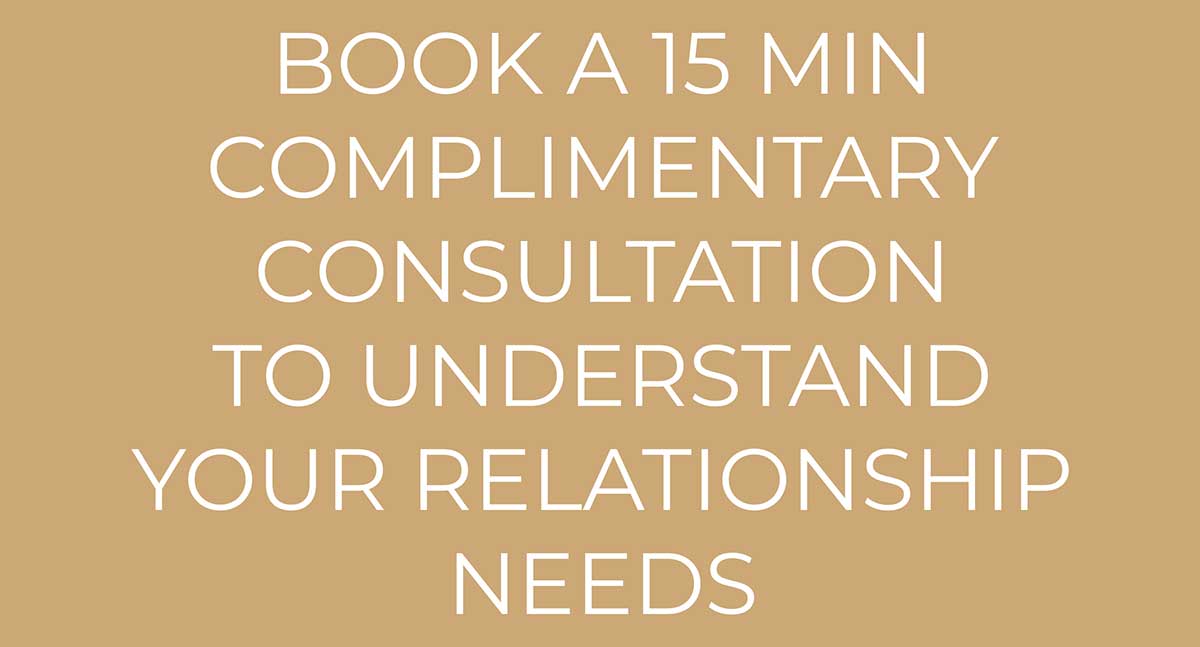
Human beings are essentially a species that depends on cooperation and connection to survive and thrive. We are naturally a pro-social being, and the desire for cooperation and connection is evident in all aspects of human life. We have an urge to connect to those around us: colleagues, friends, family and our loving partner for intimacy. This is fundamentally an instinctive driver. When we are deprived of meaningful connections, or enough emotional support we are more likely to experience stress, mental worries, or even depression. The reality is we are built to be living in community with others, in a loving relationship, and in family units. It is now clear that loneliness and isolation have many potentially harmful effects on human health, according to various research studies. 1 We need each other.
Cultivating deeper relationships has its risks, but the benefits are greater. Research studies, as well as real-world examples show that deeper relationships facilitate better health, drive better relationship opportunities in life, and in business environments greater team performance and improve the overall well-being of individuals. In this article, let us understand the various advantages of having deeper relationships in life because although love with another is incredibly important, we must also have a network of those we love around us.
Deeper Relationships Help You Thrive
Individuals with supportive and rewarding relationships tend to be mentally healthier and stronger, and they live longer lives. With further research, it has been pointed out that deeper relationships help an individual thrive. 2 A paper published in ‘Personality and Social Psychology Review,’ written by researchers Brooke Feeney of Carnegie Mellon University and Nancy Collins of the University of California at Santa Barbara, points out that thriving has five components of well-being. They are:
- Hedonic well-being (Happiness, life satisfaction)
- Eudaimonic well-being (Building a purpose in life)
- Psychological well-being (Absence of mental health symptoms)
- Social well-being (Meaningful human connections)
- Physical well-being (Healthy weight, activity levels, and better health status)
As per the study, relationships help people to facilitate the five components of thriving in life. Deeper relationships help us to reduce stress, and navigate adversities and cultivate a purpose and meaning in life.
Two Functions of Healthy Relationships
Close relationships serve two major support functions and both of these functions are equally important depending on life circumstances. Firstly, the function of a healthy relationship is to facilitate thriving through adversity. Not only does a healthy, interdependent relationship help to minimize the effects of our biological stress response, but it also motivates both people to flourish despite circumstances.
Brooke Feeney, the lead researcher, says, relationships serve an important function of not simply helping people, but helping them to thrive by exceeding prior emotional baseline levels of functioning. Basically, we become more fulfilled and more optimistic through a deeper connection to those around us we love and care about. Brooke goes on to refer to healthy relationships as a source of strength (SOS), support, and emphasizes that the promotion of thriving through adversity is the core purpose of this support function. What is beautiful about her analogy is that being a source of strength and support is such a clear vision for another in a healthy loving relationship.
Secondly, healthy relationships support thriving in individuals by promoting full participation in exploring opportunities for personal growth and accomplishment. Relationships help people to embrace and pursue life’s opportunities. They enhance positive well-being and help to foster a sense of meaning in life. Researchers call this support by the name ‘Relational Catalyst (RC).’ This is where chemistry and energy comes into play, because not everyone will help us to resonate at a higher frequency and the catalyst of a relationship can be positive or negative for us and has many complexities to it, (read our other blog articles, ‘Can humans really smell emotions’, ‘Acceptance of another’, and ‘The neuroscience of empathy & compassion’).
Mutually-Caring Relationships
Emotional support or caring for another on a deeper level has certain characteristics to it, and can often be a natural experience, but can also be very challenging with a less than ideal emotional connection with another. Emotional support skills can be developed with effort, time and through professional training, eg. counselling, therapy or coaching but it simply cannot be faked. Fundamentally what is required is a conscious sensitivity to another’s needs, and the ability to respond. We cannot really plan in a relationship because everything is always moving, but this is where connection lies, and why there is so much excitement and joy to be found in a loving relationship.
Quoting Feeney, “Any behaviors in the service of providing a source of strength of support and a relational catalyst must be enacted both responsively and sensitively to promote thriving. Being responsive involves providing the type and amount of support that is dictated by the situation and by the partner’s needs, and being sensitive involves responding to needs in such a way that the recipient feels understood, validated, and cared for.” There is no model or training to teach this fully, what is required in a healthy loving relationship or when working with couples is staying present and being able to work
with the complexity of whatever arises. This takes time, commitment and experience. The researchers believe mutually caring relationships help people to thrive.
Whether in a loving relationship or not we need a positive support structure. This concept is known as social cohesion, which refers to the extent of the connectedness and solidarity between human-beings.
According to James Coan, a neuroscientist from the University of Virginia, “Our brains rely on relationships to steer our cognitive energy and focus our attention on shared goals. We are hardwired to cooperate and connect – unless we are emotionally damaged with childhood trauma, which can too be resolved via long-term psychotherapy or coaching, and the willingness of an individual to heal and grow through the participation and work.
Our network of good friends too help us to thrive, and protect or defend us when necessary, and are therefore inherently linked to our survival. Our natural instinct is to want to reach out and connect to our colleagues, friends, family and those we love. We feel these impulses throughout the day when we are in tune with the natural openness that comes from deeper relationships with others we trust. So, building authentic connections with others not only improves our mental health, but also results in the greater success of individuals. Emotional connection enables individuals to exceed personal potential, drives personal performance and fuels happiness. There are two ways by which we can strengthen our authentic connections – through pre-planned and intentional ways, and through unplanned spontaneous engagements to build authentic meaning in our relationships. As to relax into a relationship we need both elements.
The benefits of deeper relationships are not just limited to mental and physical health, but also improve the overall well-being of us as individuals. The takeaway is – deeper relationships form the foundation necessary for optimism and happiness to flourish from within us, and be synthesized into the world through us.
References



